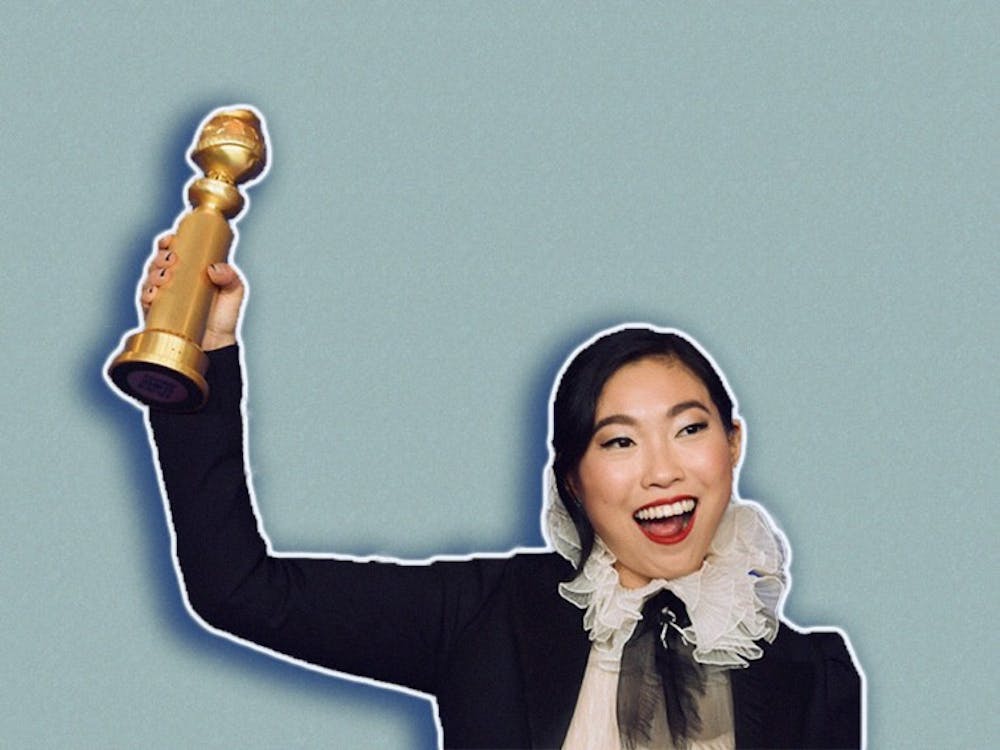On Jan. 5, Awkwafina became the first performer of Asian descent to win a Golden Globe award for lead actress in a motion picture. While her performance as Billi in “The Farewell” may have been the first time I have seen a character who looks like me authentically portrayed on the big screen, her win does not come without a bitter aftertaste. For many Asian Americans, myself included, her history-making recognition validates the importance of seeing ourselves represented in film. Yet we cannot ignore the fact that Awkwafina’s win also rewards a career-long exploitation of Black culture for personal gain.
Many have rightly criticized Awkwafina for rising to stardom through an appropriation of Black aesthetics. From her viral rap song, “My Vag,” to her breakout role as Peik Lin Goh in “Crazy Rich Asians,” Awkwafina has made a career out of performing a caricatured interpretation of Blackness. Coopting African American Vernacular English (AAVE), speaking in a “blaccent” and playing characters that could be interpreted as minstrel-esque, Awkafina has worn Blackness like a costume, putting it on when it commercially rewards her (“Crazy Rich Asians” and “Oceans 8”) and taking it off when it does not (“The Farewell” and her newest project, “Nora from Queens”).
From suburban teenagers on TikTok to Ariana Grande’s blackfishing, we usually view cultural appropriation as an offense committed primarily by white Americans. Non-Black people of color, however, also perpetuate anti-Blackness through cultural appropriation. It’s difficult not to, when appropriating Black culture has been and continues to be so central to our country’s creative production. From Broadway to rock ‘n’ roll, nearly all artistic traditions that we view to be uniquely American have origins in Black aesthetics.
Asian America, as a cohesive coalition, is still reckoning with what our cultural identity could be without being defined by our proximity to the American default of whiteness or the cultures of our ethnic origin. Throughout history, Asian Americans have been either invisible in mainstream media or reduced to a few select stereotypes. In order to render ourselves visible and establish ourselves as distinct from these diminishing caricatures, many Asian Americans have turned to Black culture as a language with which they might rewrite their identities.
Yet in attempting to fill this void of Asian American culture, they treat Blackness as an identity that is theirs to take, monetize or otherwise discard. It’s a pattern that has propelled not only Awkwafina but also contemporary Asian American celebrities such as Eddie Huang, Lilly Singh and Bretman Rock into fame and financial success, as writer Muqing M. Zhang points out.
Awkwafina’s win comes in an awards season that has failed to fully recognize Asian and Asian American achievements in the industry. Is it possible, then, to celebrate Awkwafina’s Golden Globe acting win without celebrating Awkwafina’s personal choices? Can we separate the performance from the performer?
To ignore Awkwafina’s appropriation of Black aesthetics would be to perpetuate a system that rewards the exploitation of Blackness. Perhaps instead we can celebrate the award as a win for the character Lulu Wang has created in “The Farewell.” Although Wang has been shut out of nearly all writing or directing recognitions, she should be recognized for crafting a narrative that allowed Awkwafina to play a fully actualized Asian American character, nuanced and devoid of stereotypes.
We need more characters like Billi. As more and more Asian American creatives find the courage and agency to tell our authentic stories, we may just progress a little further on our journey to building our own Asian American identity. And that I will celebrate.
Get The Chronicle straight to your inbox
Signup for our weekly newsletter. Cancel at any time.

